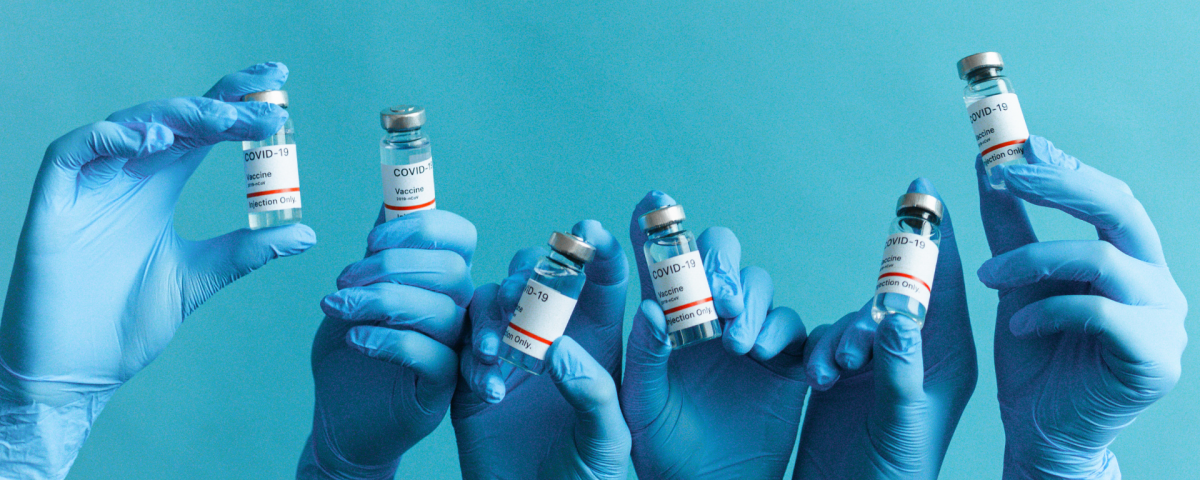
Intellicast S5E13: April MRX Conference Preview
April 1, 2022
Intellicast S5E14: It’s Good to Be Back
April 29, 2022It has been two years since the start of the COVID-19 pandemic. Just a year ago, we were speculating when a vaccine would be available and who would get it. Now, with multiple vaccine and booster options available, we want to look at who has gotten the vaccine, who plans to get it, and under what circumstances.
Vaccinations: More Helpful or More Harmful?
We started by asking respondents if they believed that vaccinations are more helpful or more harmful. Overall, people tend to believe that vaccines are more helpful than harmful with 69% of respondents believing that vaccines are either extremely or somewhat helpful.
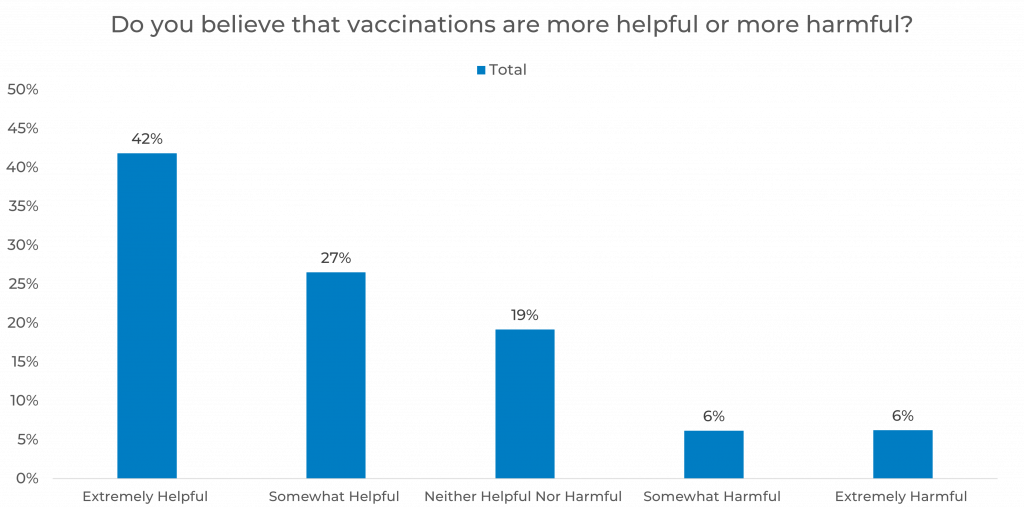
Among demographics, we found that there were limited differences in belief of how helpful/harmful vaccinations are except between Republicans and Democrats and those age 18-44 and those age 45+.
Political Affiliation
When looking at vaccination beliefs by political affiliation, we see that Democrats believe vaccines are more helpful than Republicans, with Democrats being 31% more likely to believe the vaccine is extremely helpful than Republicans. However, most of both Republicans and Democrats believe that the vaccine is more helpful than harmful.
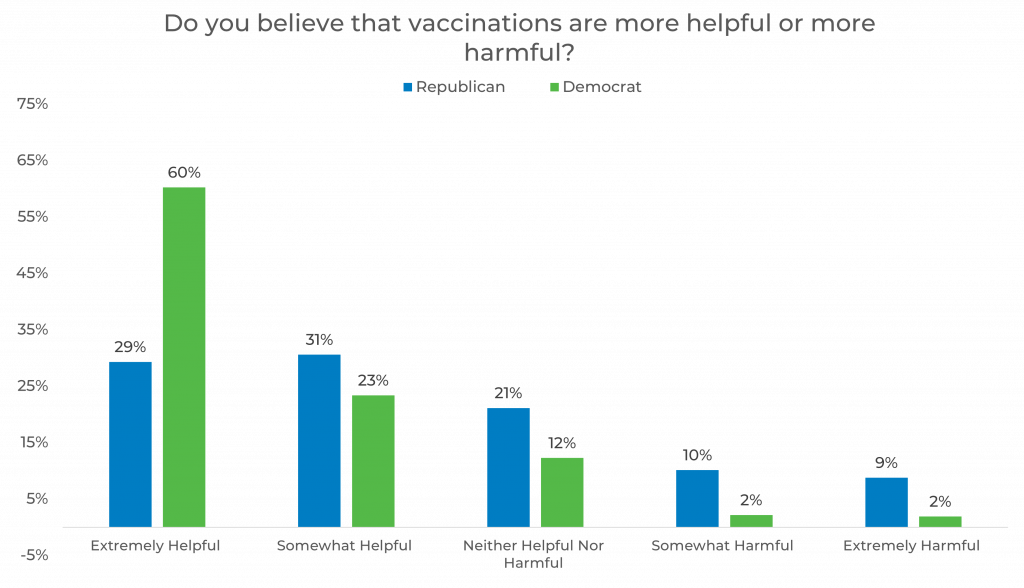
Age
Those age 45+ tend to believe that the vaccine is more helpful than those age 18-44 with respondents age 45+ being 13% more likely to believe the vaccine is extremely helpful. However, like political affiliation, both respondents age 18-44 and age 45+ believe that the vaccine is more helpful than harmful.
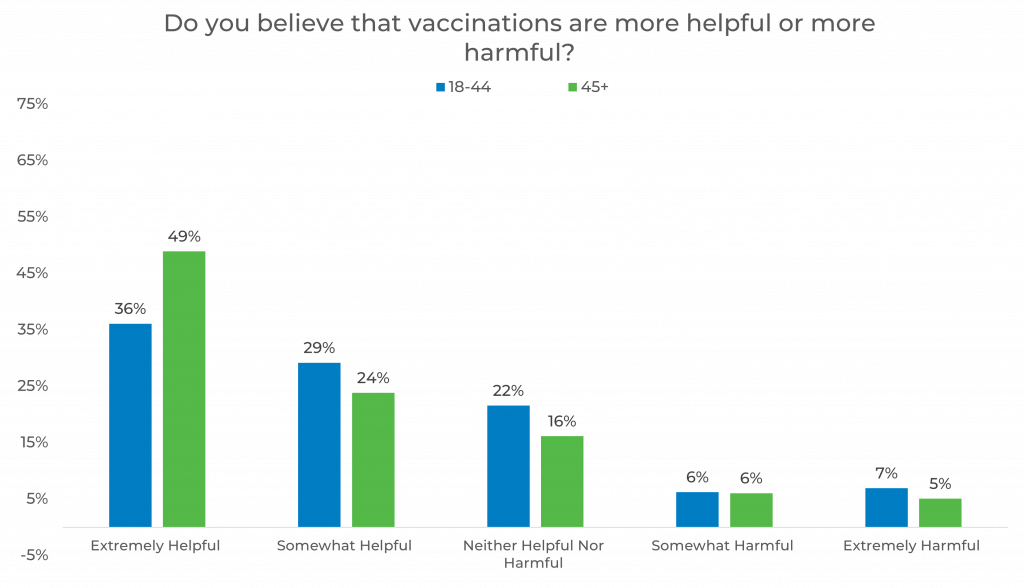
Flu Shot in the Past Year
We also looked at respondents who received a flu shot in the past year. There’s an even split between those who got the flu shot and those who didn’t.
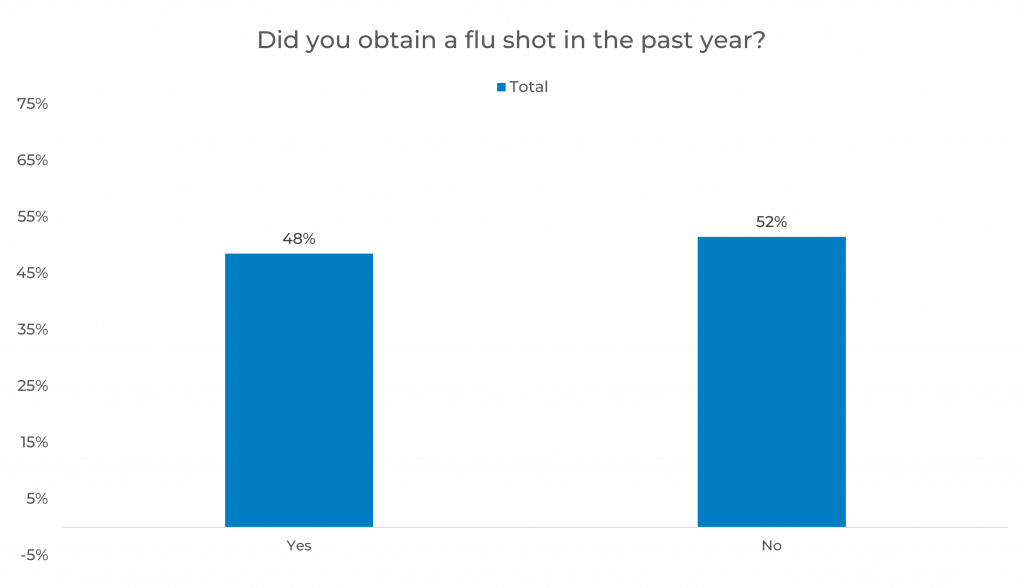
Political Affiliation
However, major differences can be seen by political affiliation with Democrats being 16% more likely to have gotten a flu shot in the past year than Republicans.
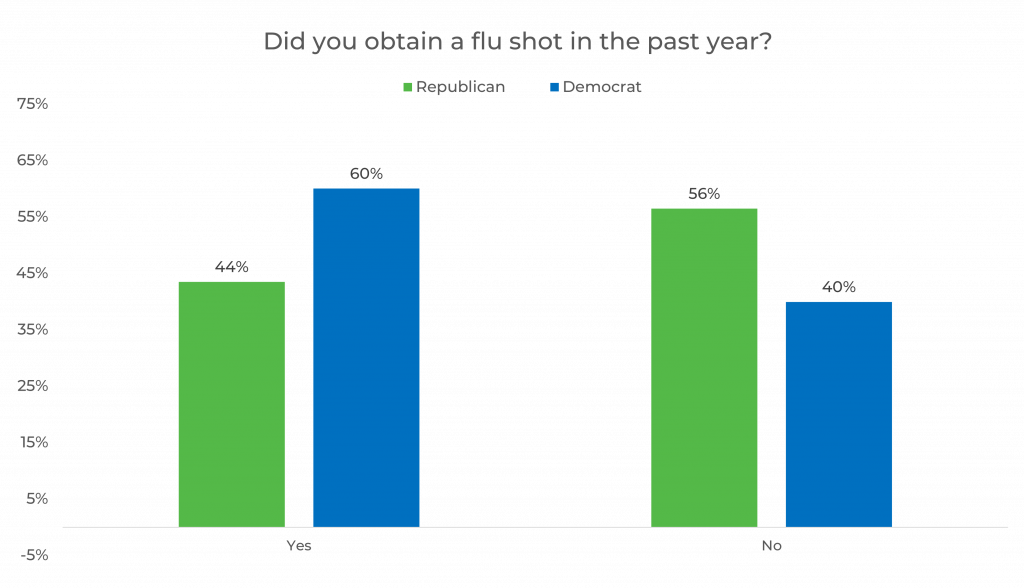
Age
Major differences can also be seen by age group with those age 45+ being 10% more likely to have gotten the flu shot than those age 18-44. This may be due to increased risks caused by the flu for older respondents. According to the CDC, it is estimated that 70-85% of seasonal flu-related deaths and 50-70% of seasonal flu-related hospitalizations occur in people age 65+.
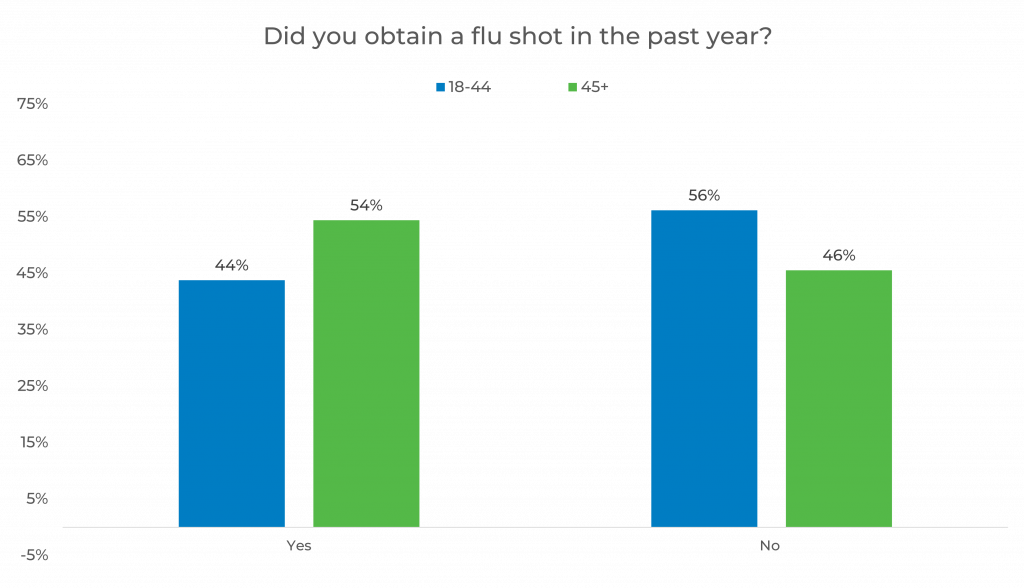
COVID Vaccine Booster Shot
We asked respondents if they have received a COVID booster shot. Again, there was an even split between those who have it and those who do not.
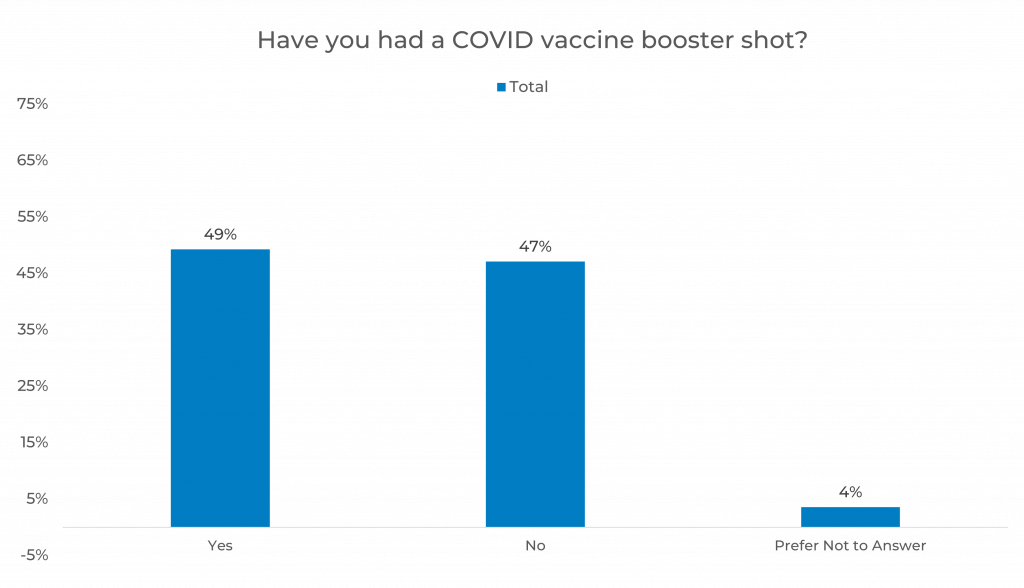
Political Affiliation
Following what we have seen when analyzing by political affiliation, there is a significant difference between Republicans and Democrats in terms of opinions on COVID vaccines and flu shots with Democrats more likely to receive them. When looking at boosters, Democrats are 30% more likely to have received a COVID booster shot than Republicans.
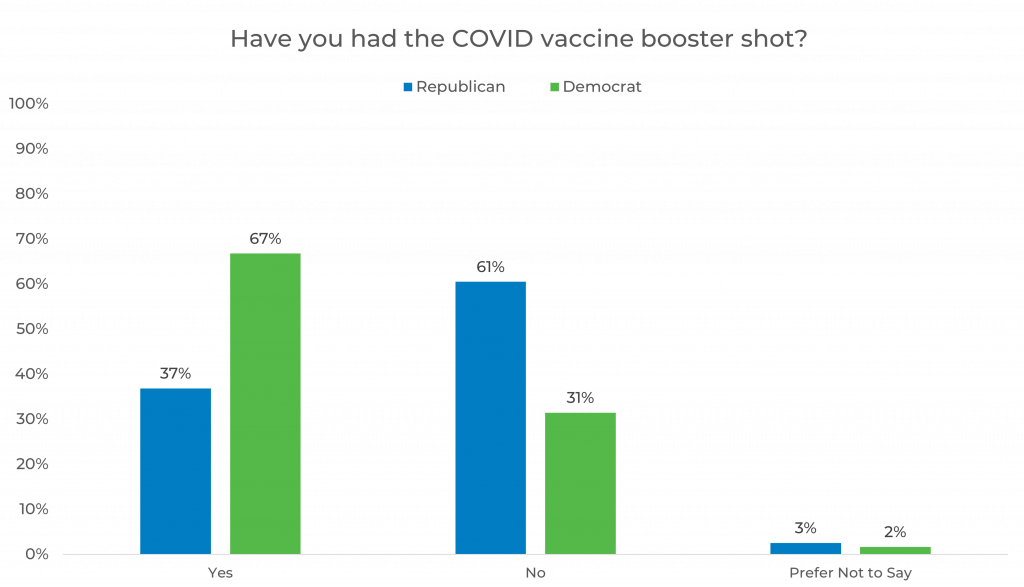
Age
There was also a significant difference by age with respondents age 45+ being 14% more likely to have received a booster shot than those age 18-44.
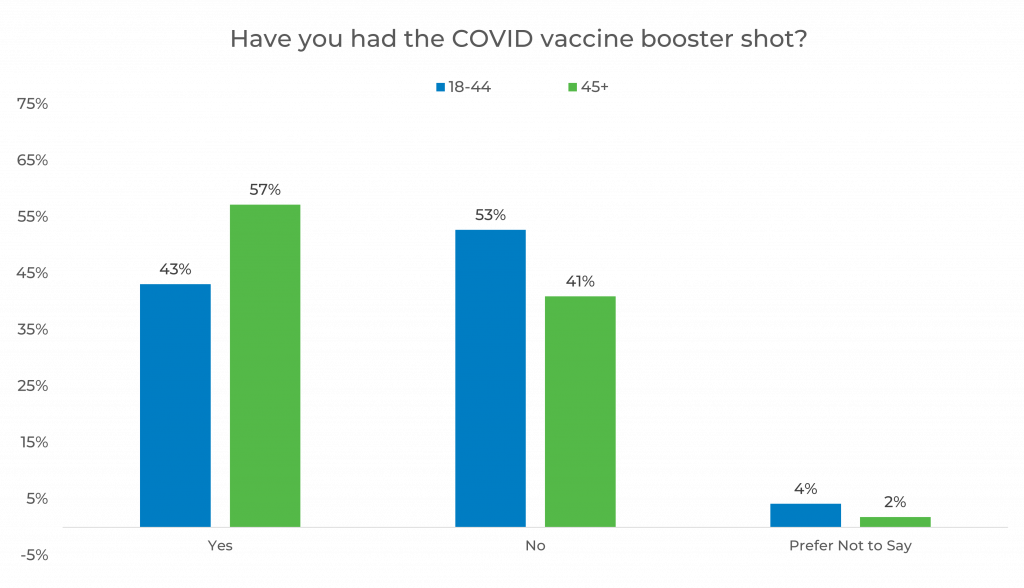
Plans to Get COVID Vaccine Booster Shot
We followed the previous question with asking respondents if they plan to get the COVID vaccine booster shot. Of those who did not already get the booster shot, we can see a 46% difference between those who are planning to get the booster shot and those who are not, with the majority saying they do not plan to get it. This may be because COVID vaccine booster shots have been available for several months now and those who want it have already gotten it.
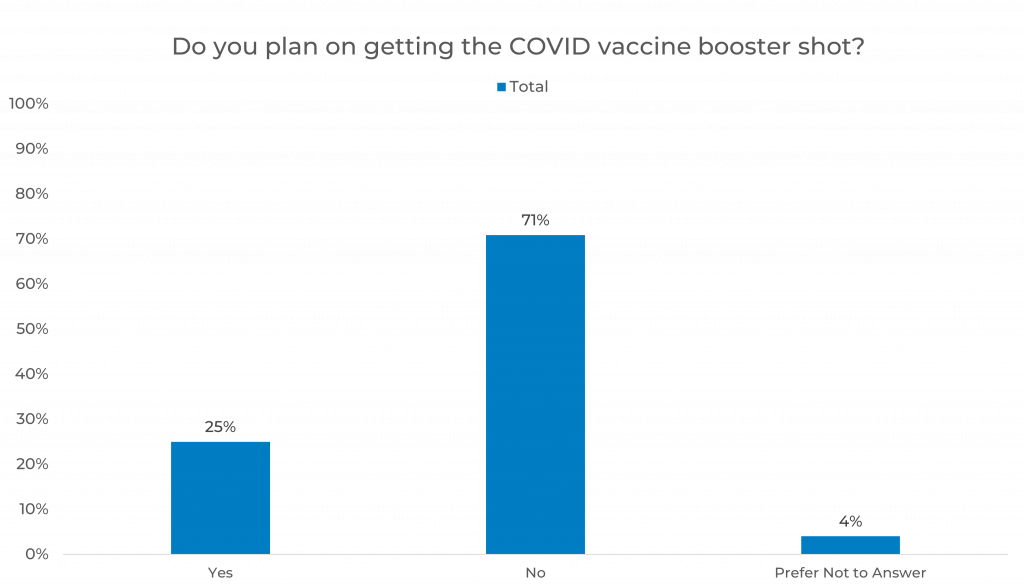
Political Affiliation
Again, we see a major difference by political affiliation. Democrats are 30% more likely to say they plan to get the COVID vaccine booster than Republicans.
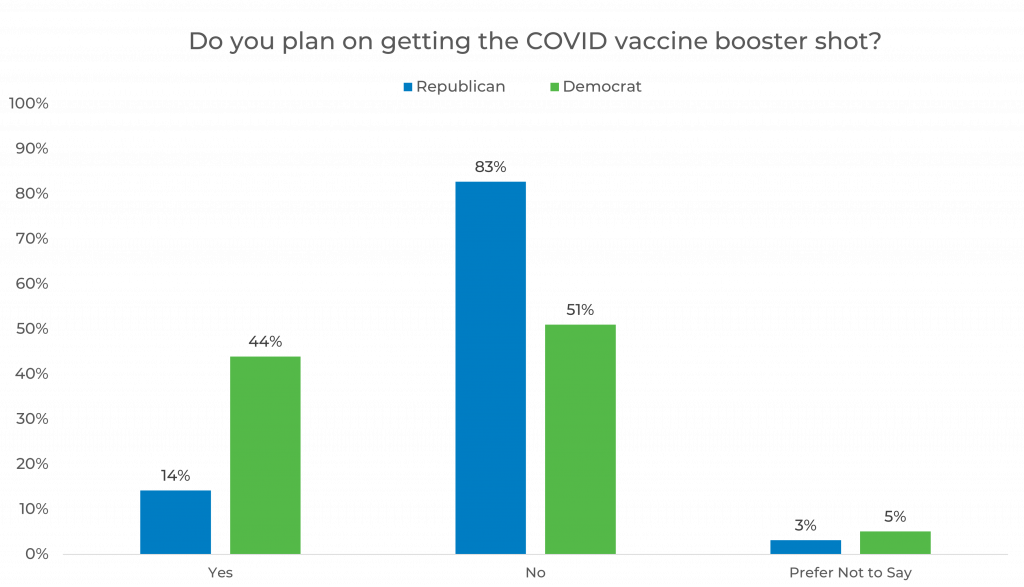
Ethnicity
We also saw a difference by ethnicity. African American/Black respondents are 10% more likely to say they plan to get the COVID vaccine booster than Caucasian/White respondents.
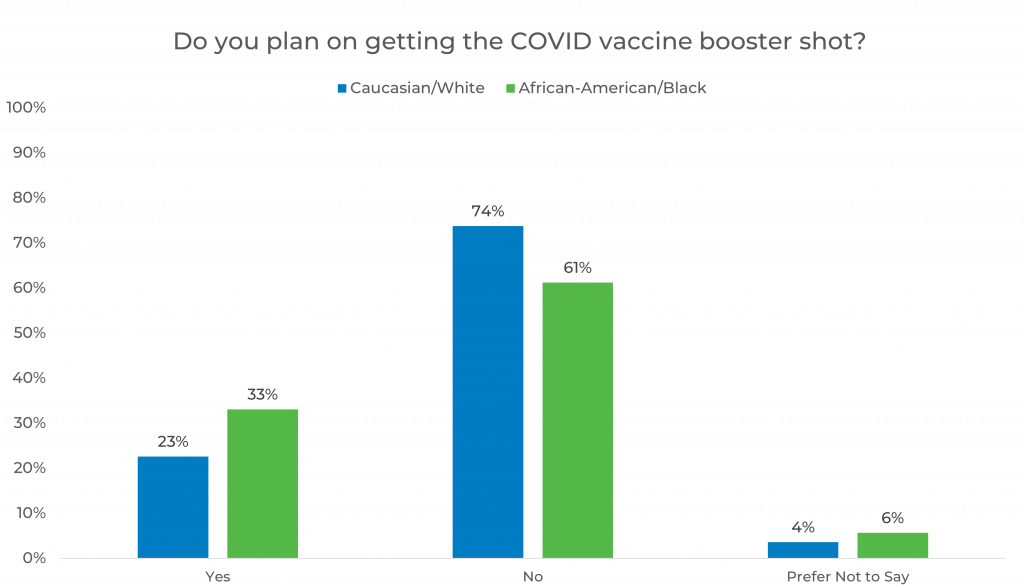
Circumstances for COVID Vaccine Booster Shot
Finally, we asked respondents who had not already received the COVID vaccine booster shot under which circumstances they would get it. Most respondents said they would not get the booster under any circumstances. This aligns with our previous findings that most respondents who have not already received the vaccine booster do not plan to get it. Here, we see that Republicans are most likely and Democrats are least likely to not receive the COVID vaccine booster shot under any circumstances.
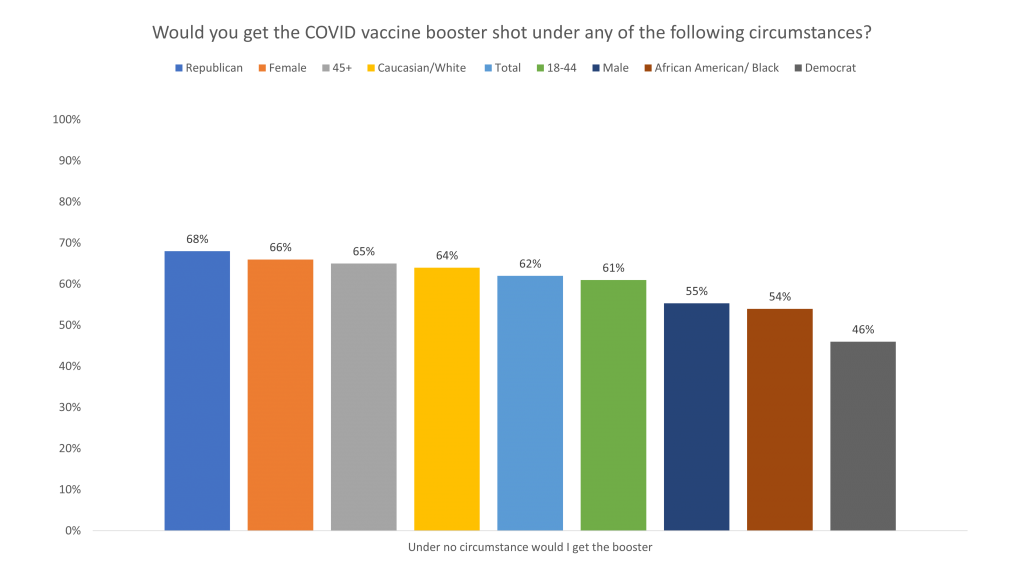
To learn more about how vaccine perceptions have changed since the start of the pandemic, read our past blogs:
COVID-19 Vaccine: Who is Likely to Get it? (January 2021)
Changes in Perceptions Around COVID-19 Vaccine (June 2021)
The Sample Landscape: Vaccinations and Minimum Wage (March 2020)
To learn more about our research-on-research, download your copy of The Sample Landscape: 2022 Edition!

